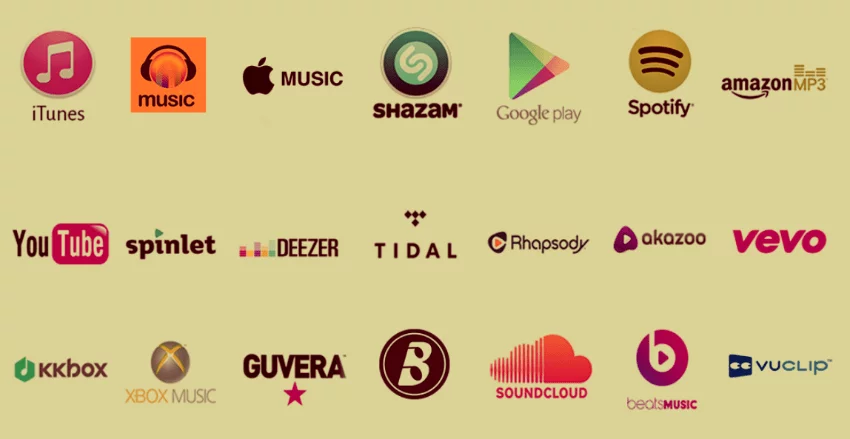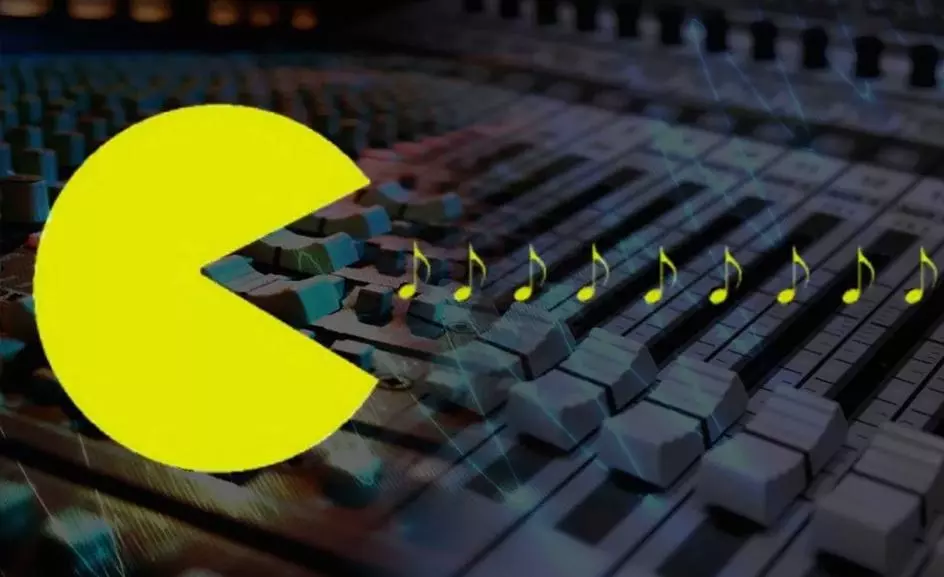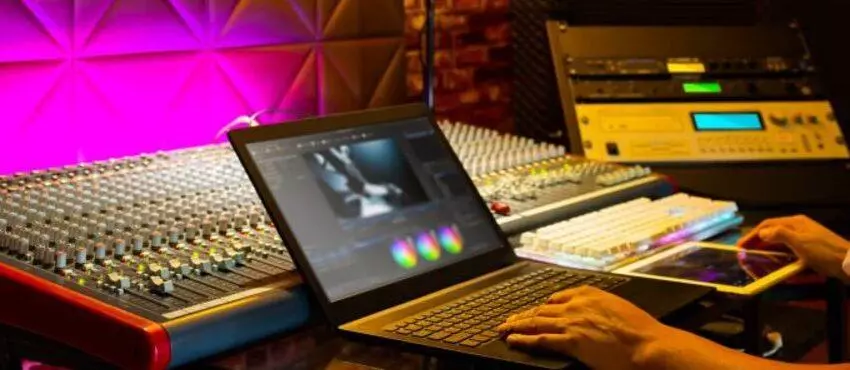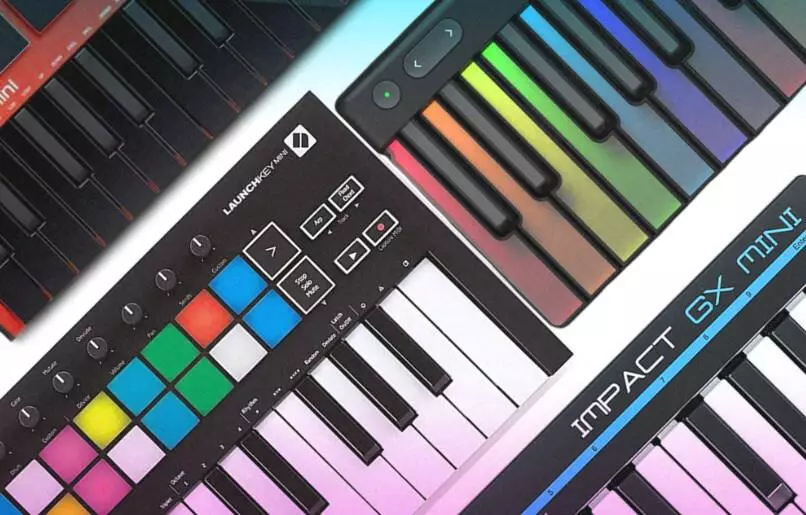How to become a music producer
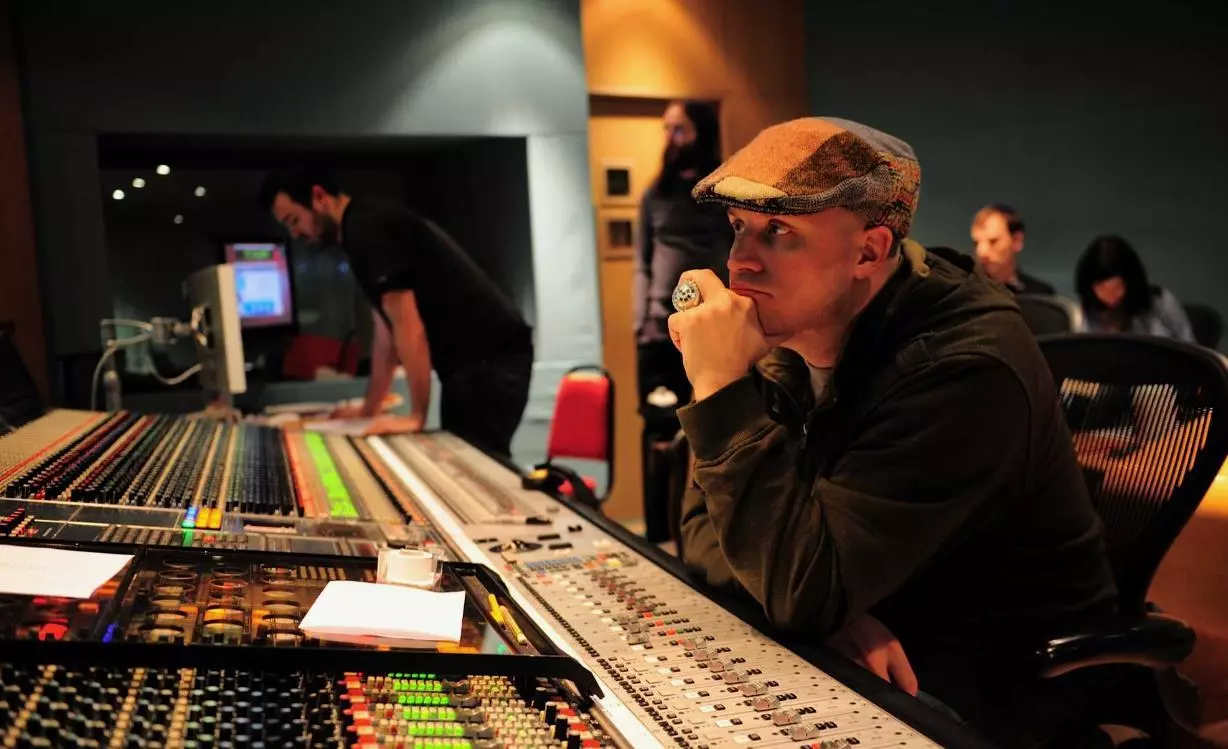
The creation of singles and albums is the result of the collective efforts of a large team of professionals: songwriters, musicians, performers, sound engineers, producers and many others. However, a key role in this process is played by the music producer, who acts as the captain guiding the project towards quality sound and commercial success.
Online beatmaker Amped Studio provides a complete set of tools for effective production of all types of music. We present to your attention all the necessary functionality for both beginning producers and experienced musicians. Creating sketches, full mixing, mastering – with Amped Studio everything can be done turnkey.
In this article, we’ll take a closer look at who a music producer is, where he works, what his responsibilities are, and what his income is. We will also discuss the advantages and disadvantages of the profession and offer advice on starting a career as a producer, even without having acquaintances in the world of show business.
Who is a music producer and what does he do?
There are different types of producers, each of whom specialize in a different area: film producers focus on films and TV series, television producers are responsible for creating television programs, online course producers focus on developing educational materials, and sound producers focus on producing music tracks. Although their activities vary depending on the field, they share a common set of creative and managerial functions. In this article we will focus on the music industry and examine the activities of a producer in this context.
A record producer, also known as a music or sound producer, plays a key role in all stages of the creation of a musical work:
- Develops the concept of musical composition;
- Forms a team of performers, including sound engineers, sound producers and technical personnel;
- Makes adjustments and improvements to the song lyrics, arrangement, stage image and performer’s performance;
- Manages the recording process in the studio;
- Evaluates the quality of the track at the mixing and mastering stages;
- Organizes promotion of the finished product, etc.
An expert in the field of music production has an excellent understanding of current music trends and knows how to find a middle ground between listener preferences and a unique sound. He has the skills to create a potential hit from scratch and add the necessary touches to an artist’s unfinished track so that fans can’t stop listening.
Sometimes the role of a sound producer is limited to overseeing the process of creating a track, in other cases he is actively involved in the creative process, perhaps even composing lyrics and music. In addition to working on songs for artists, a producer can create soundtracks for films, games and various media projects, as well as release music under his own name.
Let’s clarify who a music producer is and how he differs from a manager:
| Music producer | Executive producer | Music manager |
|---|---|---|
|
|
|
Music producer work schedule and format
A music producer can build his career either within a company or as an independent specialist. Let’s take a look at both trajectories.
In the organisation. For those who value stability and formal employment, it is worth considering looking for work in recording studios, creative agencies or production companies. Actively monitor advertisements on the websites of your desired employers or propose your candidacy yourself by submitting a cover letter, resume and portfolio.
Even if you don’t find a position as a sound producer right away, you may be able to start in another position, such as an assistant or manager. This will give you the opportunity to gain valuable experience, establish useful contacts and subsequently retrain as a producer.
As a freelancer. A freelance producer works independently, often as a self-employed or sole proprietor. His task is to independently search for talented performers and promising projects, organize cooperation and coordinate the entire process of creating a musical work.
Success in freelancing requires professional connections, the ability to present yourself convincingly, and a portfolio of previous successful projects. In the final part of the article, we will give tips on how to start a career as a music producer, including recommendations for learning the basics of the profession and building a portfolio.
Music producer salary
Determining a freelance producer’s salary in advance is difficult because it is directly related to the terms of a specific contract and is usually calculated as a percentage of the project’s income.
The amount of remuneration for work in music production is determined by several key aspects:
- Reputation of the producer: the more famous and professional experience a specialist has, the higher the percentage of the project’s profit he can demand;
- Artist’s success: affects the volume of concerts held, the number of listens, downloads and sales of tracks or albums;
- Relevance: Creating a popular hit that dominates the charts guarantees significant income.
Sound production stars earn millions for one project. Although the financial potential in this field is limitless, reaching the pinnacle of success requires time and effort.
Pros and cons of the profession “Music producer”
Before plunging into the study of a new specialization, it is important to carefully analyze it from various angles, assessing all the advantages and possible disadvantages. Let’s take a look at the key pros and cons associated with being a record producer:
| Pros | Cons |
|---|---|
|
|
Knowledge and skills required to be a music producer
There is a myth that the role of a producer is limited to monetizing the talent and work of artists, while the producer himself supposedly does not make a significant contribution. However, this is not the case. Successfully creating and promoting music projects requires a broad range of knowledge and skills.
Here are the main aspects that any producer should be selective about:
- Music theory: it is necessary to master the basics of musical notation, musical harmony, have a good ear for music, etc.
- Knowledge of musical history and current trends: it is important to understand both classical and modern music, to be able to analyze why some tracks become hits while others are quickly forgotten, and how to create potentially successful compositions based on this.
- Proficiency in professional software: to coordinate the music creation process, you need to know the tools and functions of music editors, and sometimes personally take part in this process.
Versatile practical skills increase the value of a specialist’s work in the eyes of customers and colleagues. Such skills include playing musical instruments, experience in creating songs, beatmaking, developing arrangements and sound engineering.
Personal characteristics of a music producer
In addition to hard skills, it is also important to focus on developing soft skills and personal qualities:
- Passion for music: We believe that it is important to do something that arouses sincere interest. A career in music will not be fulfilling if you do not have love and passion for music;
- Creative approach: be open to innovation, creative experimentation and the search for a unique sound;
- Communication skills: The job involves constant interaction with artists and other industry professionals, so the ability to network and communicate effectively is important;
- Organizational abilities: a producer is, first of all, a manager who is able to organize the work process and lead a team. Leadership qualities and the ability to coordinate work will be extremely useful.
Now we know what qualities and skills are needed to successfully work as a music producer. Next, we will discuss issues of education and preparation for the profession.
How to become a music producer
The world of music production includes not only songwriters, performers, musicians and audio engineers, but also music enthusiasts. Having a background in music is a significant advantage, but it is not a strict requirement for starting a career in production. It is much more important to have the necessary knowledge and skills than to have a diploma of higher musical education.
Modern technologies provide the opportunity to gain specialized knowledge online, thanks to distance courses on music production. Such training programs allow you not only to delve into theoretical aspects, but also to develop your own projects, which will become the beginning of your portfolio. Music professionals teaching these courses provide students with valuable first-hand knowledge and the opportunity to make valuable industry contacts.
How and where to develop in the profession
Becoming a music producer opens up your leadership horizons, but it’s not the limit of professional growth. Let’s look at what development paths are available in this career.
- Collaboration with famous performers. In the beginning, you have to be unselective in projects, but over time, as you gain credibility in the industry, you will get the opportunity to work with famous artists and participate in major projects;
- Starting your own business. If you have experience and a reliable team, you can open your own recording studio, production center or music label;
- Entering the stage. With a wealth of knowledge, connections and experience, the transition from behind the scenes to a stage career will be a natural step for many sound producers;
- Teaching. Passing on knowledge to the next generation of artists and producers through creating and running your own courses or production school can be your contribution to the development of the industry;
- Building a personal brand. Don’t forget about self-promotion: an active presence on social networks, creating quality content and its effective promotion will help you become a recognizable figure in the world of show business.
Thus, the path of a music producer is not just a path to project management, but also an opportunity to develop in a variety of directions, influencing music culture and the industry.
Briefly about the main thing
A music producer serves as the creative genius behind the scenes of a music project, supporting both emerging and established artists in creating and publishing high-quality tracks. These compositions often top music charts, setting records for downloads and sales, providing the artist with fame and recognition. The producer plays a key role in defining the sound of a track or album and oversees all phases of its development – from the inception of an idea to the moment of release.
This material is intended for those who seek to master the complexities and opportunities of this multifaceted profession. If you’re aiming for a career in music production, take a look at our selection of specialized online courses. After completing the training, you will receive the necessary practical skills and will be able to develop the first projects for your portfolio, which will be an excellent start in your professional activity.


